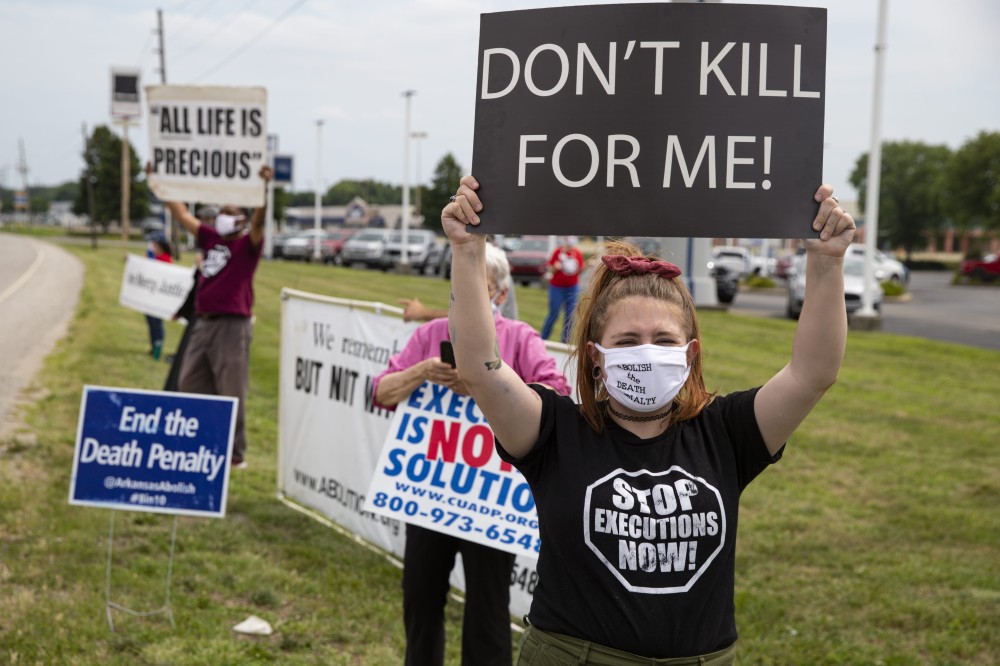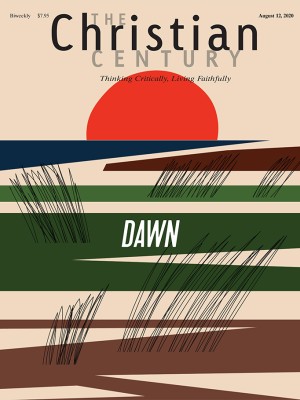Faith leaders denounce Trump administration’s renewal of federal death penalty

Faith leaders are speaking out against the federal government’s decision to begin executing federal prisoners, decrying the Trump administration’s decision to end a nearly two-decade-long moratorium on the federal death penalty.
The outcry came as the US Department of Justice carried out its second execution in a week on July 16, killing 68-year-old Wesley Purkey by lethal injection after he was convicted in 2003 of raping and murdering a 16-year-old girl as well as killing an 80-year-old woman.
Purkey’s death followed the July 14 execution of Daniel Lewis Lee, who was convicted for his involvement in the killing of a family of three. Dustin Honken, who was convicted of shooting and killing five people in July 1993, was executed on July 17.
Read our latest issue or browse back issues.
Faith leaders say the federal government’s use of the death penalty, which resumed after a 2019 push by the Justice Department, is out of step with their faith. More than 1,000 faith leaders signed a letter released on July 14 demanding the White House and Attorney General William Barr halt the practice.
“As our country grapples with the COVID-19 pandemic, an economic crisis, and systemic racism in the criminal legal system,” the statement reads, “we should be focused on protecting and preserving life, not carrying out executions.”
Signatories included United Methodist bishop Joe Wilson of Georgetown, Texas; Catholic archbishop Joseph Kurtz of Louisville, Kentucky; Martin Field, bishop of the Episcopal Diocese of West Missouri; and Shane Claiborne, founder of Red Letter Christians.
The executions come at a time when opposition to capital punishment has climbed to some of the highest levels in decades.
A 2018 survey from the Public Religion Research Institute found that 55 percent of Americans preferred life in prison without parole over the death penalty for people convicted of murder, compared with 44 percent who preferred capital punishment. Most major religious groups—such as black Protestants (80 percent), white Catholics (54 percent), and non-Christian religious groups (57 percent)—also favored life in prison, with two notable exceptions: white evangelicals (62 percent) and white mainline Protestants (54 percent) both preferred the death penalty.
Multiple denominations have issued statements opposing the death penalty in the past, including the United Methodist Church, Evangelical Lutheran Church in America, Episcopal Church, Presbyterian Church (U.S.A.), United Church of Christ, Unitarian Universalist Association, and Union for Reform Judaism.
“The premeditated and unnecessary killing of a person is unchristian and beyond the legitimate powers of the state,” read a 2019 statement from the Episcopal Church released shortly after the Trump administration revealed its intention to resume federal executions.
The Catholic Church has long discouraged the death penalty as well, with Pope Francis approving a change to the Catechism of the Catholic Church in 2018, calling the practice “inadmissible.”
“The government isn’t being ‘tough on crime’ when it executes our fellow citizens,” Helen Prejean, a Catholic sister and longtime opponent of the death penalty, tweeted on July 15. “The death penalty is a sign of weakness, not strength. It shows that our society has failed to solve social problems. Capital punishment makes the US a human rights pariah in the global community.”
Trump’s support for the practice is in stark contrast with his Democratic opponent, former vice president Joe Biden, a Catholic who is backing legislation to end the use of the death penalty at the federal level.
Trump was asked about the issue in June by the conservative Catholic television station EWTN. “I am totally in favor of the death penalty for heinous crimes,” Trump replied. “That’s the way it is.”—Religion News Service



